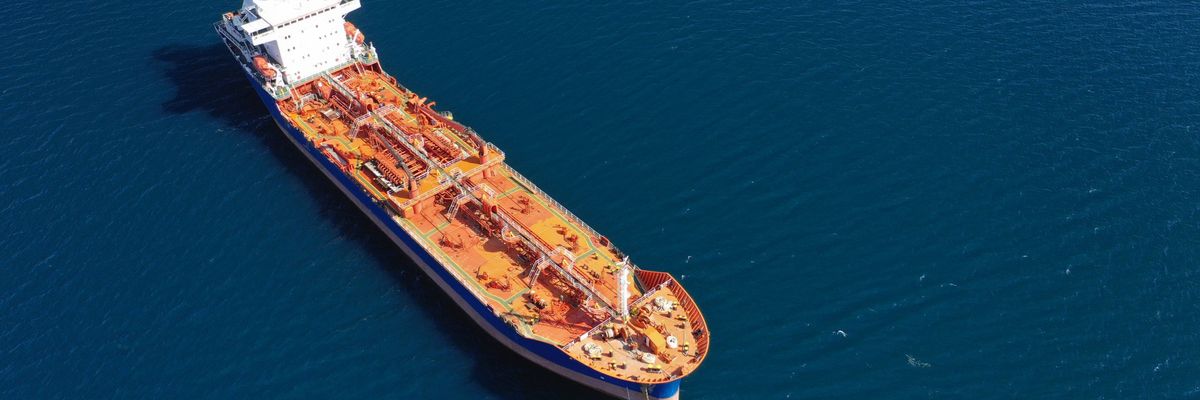The Joe Biden administration may be only a few weeks old, but the first challenge to the U.S.-South Korea alliance is already here, and it has nothing to do with North Korea or China.
On January 4, Iran’s Revolutionary Guard seized Hankuk Chemi, a South Korean oil tanker that was sailing in the Strait of Hormuz, ostensibly because the ship was polluting the waters. The seizure of the ship, which was headed to United Arab Emirates from Saudi Arabia with 20 sailors and 7,200 tons of ethanol, has raised tensions between Iran and South Korea.
The Korean government dispatched a naval destroyer to the Strait of Hormuz as a show of force, and also summoned Iran’s ambassador in Seoul to demand the release of the ship. In addition, the Korean government sent Vice Minister of Foreign Affairs Choe Jong-geon to Tehran on January 10 to negotiate the release of the ship. After an exchange of barbed words between Seoul and Tehran, Iran agreed to release most of the sailors although it continued to hold the ship and its captain
Vice Minister Choe’s press conference upon his return confirmed to the South Korean foreign policy circles what they had suspected about the ship’s seizure: it was connected to approximately $7 billion of Iran’s money, currently impounded in South Korean banks.
South Korea and Iran historically have maintained a solid bilateral relationship, to a point that until recently, South Korea was Iran’s third largest trading partner behind only China and India, and Iran in turn was South Korea’s third largest supplier of petroleum. Based on this relationship, two South Korean banks — Woori Bank and IBK Bank — were holding Iran’s proceeds in petroleum sales in Korean won. But the $7 billion proceeds were frozen since 2018, as the United States stepped up the sanctions against Iran during the Donald Trump administration.
Although Tehran officially denied that it seized the ship to gain leverage in the negotiation, it’s easy to read between the lines.
Ali Rabiei, the Iranian government spokesman, said in a news conference held on January 5: “If there is any hostage-taking, it is Korea’s government that is holding $7 billion which belongs to us hostage on baseless grounds.”
Vice Minister Choe raised a similar theme, noting that when he demanded the release of the ship and its sailors in strong terms, Iranian officials responded with strong demands for the release of the $ 7 billion.
Seoul and Tehran are reportedly negotiating to have the money applied toward the COVID-19 vaccine and other medical supplies, which are exempt from sanctions. Iran is balking, however, because it fears that the funds might be routed through a U.S. bank where the U.S. authorities would seize the money. In the end, it may be up to Washington for Seoul and Tehran to resolve this situation.
Following the Trump administration’s killing of Iranian General Qassem Soleimani, I raised the point that U.S. actions against Iran would have consequences that reach far beyond the Middle East, as it would place a key U.S. ally in East Asia in a difficult position. Today, we are seeing the materialization of that precise risk: South Korea and Iran squaring off while holding each other’s money and ship, in a situation caused ultimately by U.S. sanctions against Iran.
This episode presents the first challenge for the U.S.-South Korea alliance for the Biden administration. This moment is not quite as dire as the days immediately following the killing of Soleimani, when a war between the United States and Iran appeared to be a realistic possibility and South Korea would face with the difficult choice of potentially joining yet another unpopular U.S.-led war in the Middle East after having sent troops to Iraq in 2003.
Yet it remains true that South Korea is facing this situation of having its ship and citizen held hostage in Iran because it is acting as a good ally to the United States and faithfully participating in its sanctions regime against Iran. The Biden administration should make good on its pledge to repair U.S. alliances by recognizing the cost that South Korea bore for being a faithful ally. Washington could be more active in resolving this standoff between Seoul and Tehran, for example by reassuring Iran that it would not attempt to seize funds that were intended for medical supplies.
This episode also offers a broader lesson: an adversarial U.S. posture in one region imposes a cost on U.S. allies everywhere in the world, including those who may not appear relevant in the first blush.
There was a time when the United States never had to think deeply about these costs, and expect its allies to simply grin and bear it when they do arise. The United States can no longer afford to take such a unilateral stance toward its alliances. If the Biden administration is serious about multilateralism, it must widen its view beyond the narrowly defined national interest of the United States, and conduct its foreign policy while also considering the implication of its initiatives to U.S. allies and the world.
















